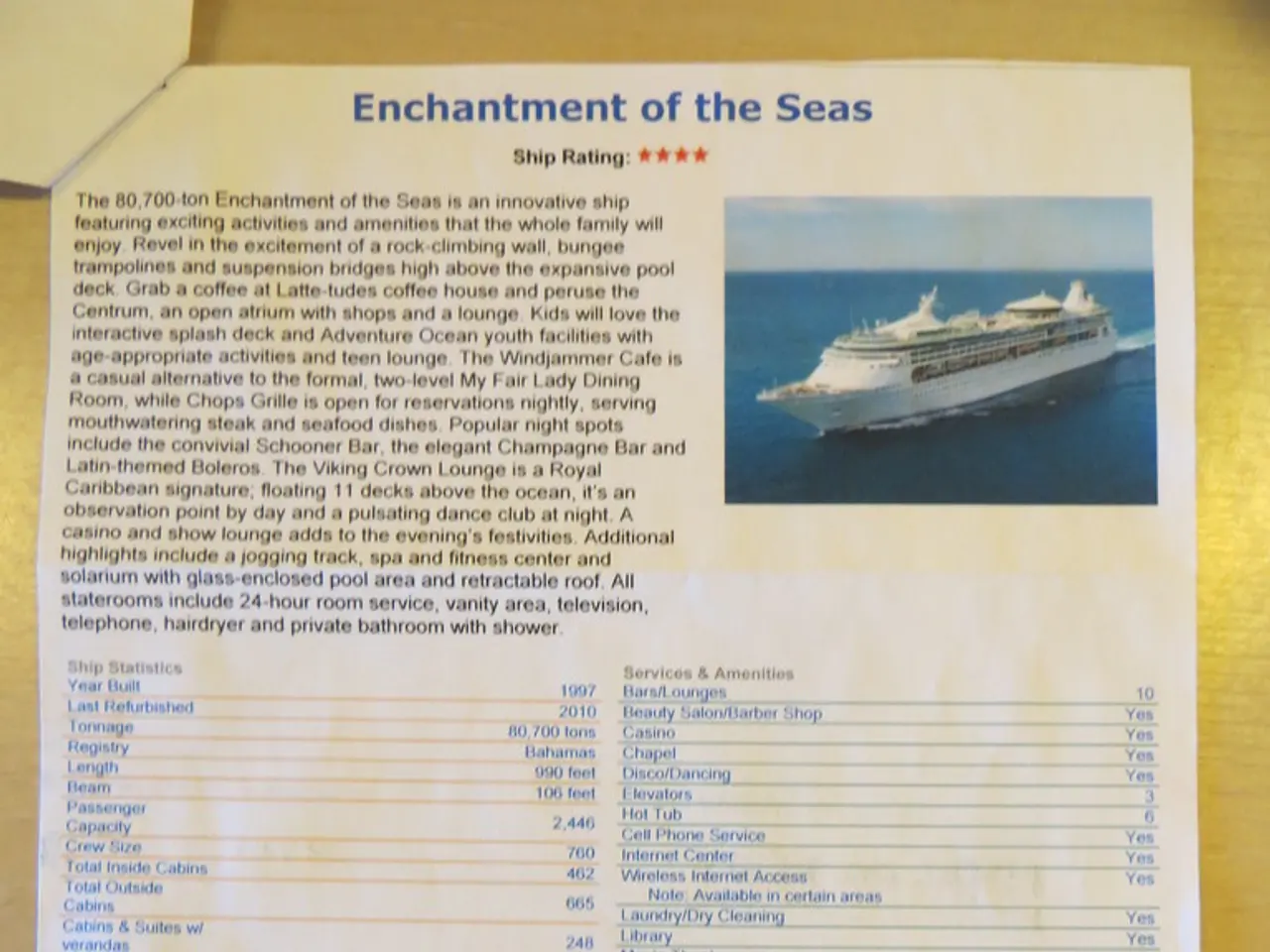Increased Demand for Chinese Activity in Pratas to be Addressed
The South China Sea is once again at the centre of a diplomatic standoff, as China continues its oil drilling activities near Pratas Island, a Taiwanese-controlled island. The Presidential Office in Taiwan has urged China to explain its actions and immediately terminate drilling activities within Taiwan's and other countries' exclusive economic zones (EEZ).
Reports indicate that Chinese oil rig Nanhaierhao has moved deep into Taiwan's claimed EEZ near Pratas Island. This development comes amidst China's ongoing efforts to expand reefs and atolls into islands for military sites not only in the South China Sea but also in the East Sea (Sea of Japan) and the Yellow Sea.
Democratic Progressive Party Legislator Chiu Chih-wei stated that China's oil rig activity shows expansion of construction efforts in the South China Sea. The Chinese oil platforms near the Pratas Islands, operated by China National Offshore Oil Corporation (CNOOC) since July 2021, have been managed and supported by the corporation.
The distance between CNOOC's rig and Pratas' restricted waters is around 30 miles (48.3km), although earlier it had come as close as 770 yards (704m). This proximity has raised concerns about China's intentions and the potential risks to regional stability.
Under international conventions, Taiwan can stress that China's actions endanger the status quo and escalate risks to regional stability. Taiwan National Security Institute deputy secretary-general Ho Cheng-hui calls on Taiwan to work with like-minded nations to protest China's creation of artificial islands for military installations.
Taiwan and the Philippines should file a joint protest against China's infringement on their maritime territories. Lawmakers in Taiwan are urged to work together to fight China's encroachments into Taiwan's maritime territory, as the opposition has slashed budgets, eroding the effectiveness of naval forces.
The Presidential Office has stated that Chinese oil rigs have violated international maritime conventions. Taiwan's government is urged not to allow China's encroachments into Taiwanese-controlled islands. Ho Cheng-hui also emphasises the need for Taiwan to boost the capacity of ships to patrol islands under its control in the South China Sea.
China, however, is using a strategy of "strategic ambiguity within a focused warfare strategy" to normalise encroachments and force acceptance of new norms. This strategy, coupled with China's navy fleet's lack of long-distance capacity and experience in maritime operations, means they rely heavily on islands for logistics and storage, and to extend Chinese influence.
As China's oil rigs near Pratas Island present a challenge for Taiwan, it may be difficult to gain international support for sovereignty claims. However, Taiwan cannot resist China's illegal expansion alone and must cooperate with other friendly nations to stop it. A lawsuit at the International Court of Justice is suggested to protest China's oil rig activity near Pratas Island.
Ho Cheng-hui urges Taiwan to take a proactive stance in defending its territorial rights and work with like-minded nations to maintain peace and stability in the South China Sea. As the situation continues to evolve, it is crucial for all parties involved to engage in dialogue and find a peaceful resolution to the ongoing disputes.
Read also:
- ICE directed to enhance detention conditions following NYC immigrants' allegations of maltreatment
- Israeli finance minister issues warnings about potential annexation of West Bank territories
- United States faces rebuttal from South Africa over allegedly deceitful human rights report and assertions of land expropriation
- Accident at Rodalben Results in Injuries; Geoskop Area near Kusel Affected After Stormy Weather








